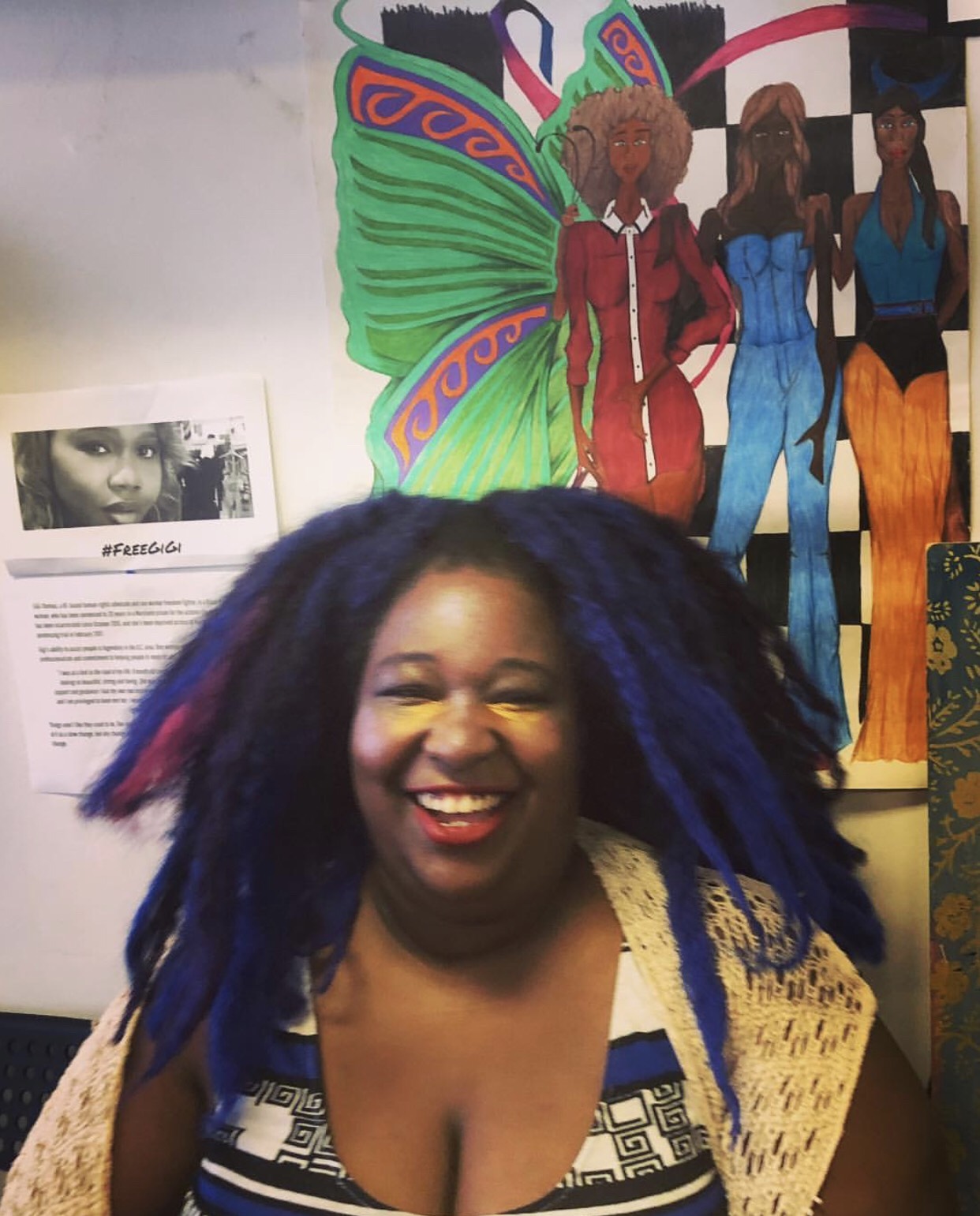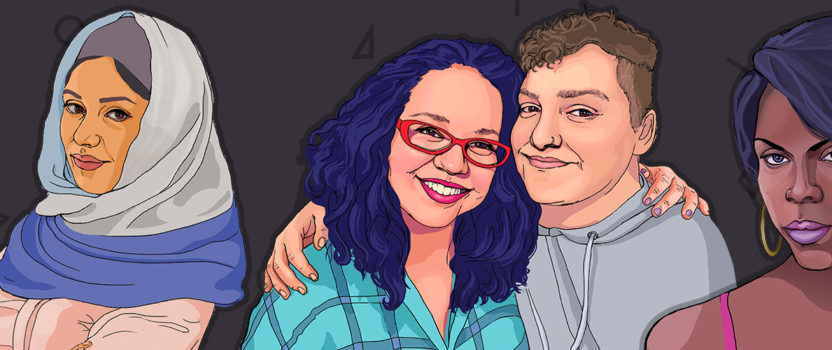Introducing CASS’ New Executive Director
June Jordan
“And who will join this standing up
and the ones who stood without sweet company
will sing and sing
back into the mountains and
if necessary
even under the sea
we are the ones we have been waiting for”
This week marks the beginning of a new journey for us. On Monday, September 9th, I joined the CASS team as Executive Director – an honor passed along from the fiercely amazing alicia and Jessica. I’m filled with profound gratitude and cognizance of the weight this role holds, and June Jordan’s words breathe life into a bold illustration of this responsibility. A responsibility that will have its share of sacrifice. A responsibility I’m committed to fulfilling for a long time, while actively disrupting the narrative of Black women and femmes shouldering the burden of emotional and physical labor without reciprocity of care and support.
Here’s my story.
My people are “Old Town Road” country. Black folks who studied the Bible fervently. Black mommas who sold kool cups and hot pickles during the summertime. In my household, I endured a “spare the rod, spoil the child” environment, only to step outside and witness KKK recruitment billboards plastered across the highway when visiting my grandmother. The concept of safety was elusive to me, especially when the rationale used for the physical harm I experienced was “I don’t want to see you in the streets or in jail.” I believed proving my goodness would protect me from violence, even as remnants of horror echoed in my community after the brutal murder of James Byrd Jr. by white surpremacists. This flinching fear of violence or death just for existing reeks heavy in the South, and I thought I would escape it by moving to DC in 2005.
My experiences at Howard University opened up a new world to me. A world where Blackness was synonymous with “excellence” and power, and spanned globally beyond the narrative of enslaved Africans. However, being a fat, dark-skinned scholarship kid who fraternized a little too much with the DC locals cast me outside of that realm of elitism in Howard culture. Over time, my community became the uptown roamers who dodged bullets while protecting their loved ones, and the little Black children east of the River who didn’t feel connected to the monuments and museums we’d visit on the Mall. DC has been home to me for almost 15 years. I’ve witnessed and experienced the massive tectonic displacement of Black folks ushered in by Fenty’s rule and the cultural shift that the millennial politicos of Obama’s reign brought forth.
It wasn’t until 2011 that I realized I wasn’t immune to perpetuating harm. Working in DCPS hardened me in ways I wasn’t fully aware of, regurgitating the same sentiments I’d heard in my home to the marginalized Black children in my classrooms. I truly thought that an education would save these babies from experiencing systemic harm, but I was proven wrong time after time. I reminisce about Jaidyn, the tomboyish Black girl who received special education services, and how I vowed to protect her when one of her white male classmates physically attacked her after she won a recess soccer game. My idea of protecting her was to ensure the boy who hurt her would face harsh consequences. The white student only had to scribble “sorry” on a ripped piece of paper because his parents were wealthy and influential on the PTA. Her composure and acceptance – despondent but aware of the normalcy of apathy of those in power, taught me how early people with multiple marginalized identities are indoctrinated to believe that this is the way our world will always work.
Michael Brown and Treyvon Martin brought me to this current era of the Movement for Black Lives, Natasha McKenna and Gigi Thomas keep me firmly planted in this fight for our freedom. I joined my political home, BYP100, in early 2015 and am still constantly growing my political analysis around abolition, anti-capitalism, transformative justice, and the Black Queer Feminist Lens. It was here that I learned that just because I identify as a non-binary femme who is disabled and has twice experienced homelessness that I have the “answer” for how we’ll all get free. It was here that I was introduced to tangible answers to addressing patriarchal and racialized violence without involving the state through bystander intervention and community accountability. It was here that I absorbed the lessons of Ella Baker’s group-centered leadership approach by acting in several leadership roles that still foster the sustainment of the DC Chapter and overall organization. It was here that I built a relationship with my ancestors and became a spiritual healer, and connected deeper to the undeniable necessity for Black folks’ reparations to include new ways of healing and creating safety for each other.
And it is here, now, at CASS that I’m blessed to live out my values in my professional work. Our collective safety and healing is an iterative process, packed with tumultuous bumps and mistakes. I’m prepared for the rollercoaster working in this role will bring, and vow to engage in principled struggle with my comrades and community. My commitment to CASS is an enthusiastic dedication to actualizing alternatives to punitive consequences for systemic and interpersonal harm, facilitating the unlearning of trauma-based responses to violence within our communities, and redefining safety as a collective responsibility for everyone. My vision for my first year includes:
- Widen the impact of our bystander intervention training, Safe Bars Collective work and our ReThink Masculinity program, by using data-driven techniques to enhance the content and expand its reach to more businesses, collectives, and individuals
- Operationalize CASS’ transformative justice praxis by supporting the research, skill-building, and local infrastructure development that is led by women and LGBTQ survivors of color
- Organize alongside the Sex Workers Advocacy Coalition to win our DecrimNow campaign, and continue the longstanding advocacy work CASS has established for survivors, sex workers, and trans and/or queer people of color
- Steward relationships and opportunities that support with abundantly resourcing our work, while holding the complexity of working against perpetuating the non-profit industrial complex
- Revolutionize the role of executive director by collaborating intentionally with the board, building shared leadership with volunteers and staff that is non-hierarchical and grounded in holistic support
My vision is not mine alone – it follows in the footsteps of those before us, and stands alongside so many of us who are in the trenches daily.
We are indeed the ones we’ve been waiting for.
I’m elated to be on this journey towards liberation with you.

Photo from DecrimNow Art Gallery in 2018

